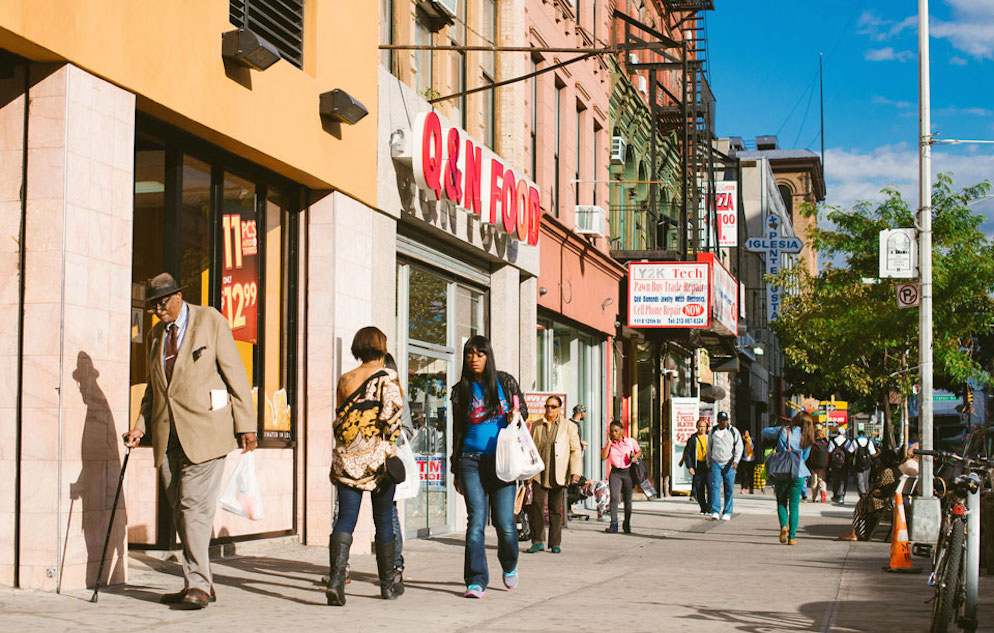The NYU-CUNY Prevention Research Center (NYU-CUNY PRC) is pleased to announce the release of a report entitled “Launching a Neighborhood-Based Community Health Worker Initiative,” underscoring the key health priorities of public housing residents living in five New York City Housing Authority (NYCHA) developments in East and Central Harlem. The report is part of a collaboration between the New York City Department of Health’s Harlem Health Advocacy Partners (HHAP) program, the NYU-CUNY PRC, NYCHA, and the Community Service Society (CSS).
The report outlines key findings from a health needs assessment conducted at the start of the Harlem Health Advocacy Partners (HHAP) initiative. The findings are based on a phone survey of 1,123 residents who were ages 35 and older from five East and Central Harlem NYCHA developments: Clinton Houses, Johnson Houses, Lehman Village, King Towers, and Taft Houses. Another 55 residents with chronic conditions participated in focus groups to share their experiences.
Key findings include the fact that mental health emerged as a critical concern in this community, and that while most residents are insured, many still face other barriers to receiving quality care. Results and recommendations have been used to inform HHAP program’s developent, which aims to improve the heath outcomes of Harlem residents by linking them with community health workers and health advocates.
“These findings outline the need of implementing the community health worker model in neighborhoods with the highest disease burden,” said Health Commissioner Dr. Mary T. Bassett. “Through the Harlem Health Advocacy Partners program, community health workers and health advocates are able to connect residents to affordable health insurance and high quality health care from local providers.”
The full report can be accessed on the NYU-CUNY PRC’s website here.
For more information about the HHAP, visit nyc.go/health and search “HHAP.”




